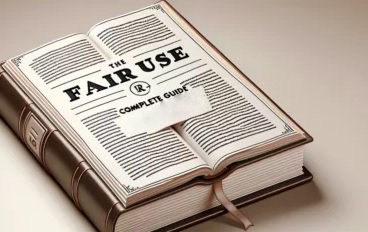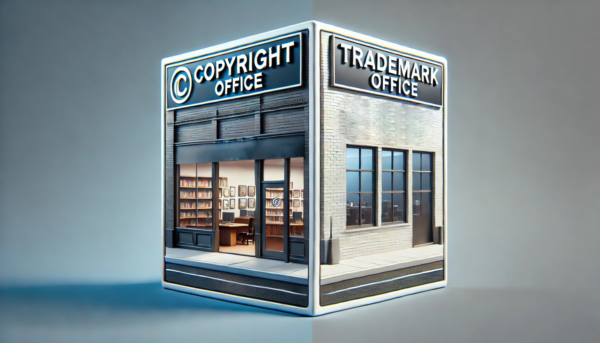In the world of publishing, where stories are currency and words wield power, protecting your intellectual property isn’t just a good idea—it’s essential. Whether you’re scribbling your first draft on a napkin at a café or polishing the final chapter of your second book, understanding copyright is key to preserving the fruits of your creative labor. Engaging in creative writing not only hones your skills but also makes it crucial to safeguard your work. After all, as an aspiring author, the last thing you want is to see your brilliant idea fly off someone else’s shelves while you’re left muttering, “But I wrote that!”
Copyright might sound like a tedious legal matter, but think of it as a superhero cape for your work, giving you the exclusive right to control how your stories are shared with the world. Good writing is essential for standing out in a competitive market, and copyright ensures that your unique voice remains protected. So, grab your coffee (or tea, if you prefer), settle in, and let’s demystify copyright with 10 simple tips that’ll keep your literary dreams safe and sound.
1. Copyright 101: What Aspiring Writers Must Know
First, the basics. Copyright is your legal shield against unauthorized use of your creative work. It’s automatic—your work is protected the moment it’s written down or otherwise recorded. No filing is necessary. However, while copyright applies instantly, registering it adds an extra layer of legal protection, which can be critical if disputes arise.
Think of it as locking your house: your work is already yours, but registration is the deadbolt that keeps out opportunistic thieves. Whether you’re drafting fiction, nonfiction, or your magnum opus on knitting techniques, understanding copyright is a crucial part of the publishing process to ensure you remain the sole owner of your ideas and words.
Always Document Your Work from Day One
The early days of writing are thrilling and messy. When you start writing, your manuscript evolves, your ideas develop, and your files multiply. Document everything. Every draft, email, or annotated napkin could prove invaluable if someone questions your authorship later.
Your Publishing Journey Awaits – Start NowPro tip: Keep a dated folder for every project. Even if you end up deleting a scene where your protagonist buys a pet snail, the record of it being your snail-buying scene might save you in court one day.
2. Register Your Copyright for Added Protection
Although copyright exists automatically, formal registration with your country’s copyright office gives you the legal muscle to enforce it. Think of it as the difference between calling a friend for help and hiring a lawyer with a briefcase full of evidence.
This step is especially important if you’re planning to submit your manuscript to literary agents or publishers. Registration typically involves a small fee and a bit of paperwork—well worth it for the peace of mind, especially when sharing with beta readers or working with publishing companies.
Beware of Publishing Scams and Protect Your Rights
Not every publisher has your best interests at heart. Some shady companies offer deals that sound too good to be true—because they are. These scams often prey on new writers eager to see their names in print.
Read contracts carefully, and if something feels off, seek advice from industry professionals, such as a literary agent, or join writing groups to get the scoop from other writers. Remember, a good publisher values your work and respects your rights.
3. Choose the Right Traditional Publishing Route for Your Work
Publishing is no longer a one-size-fits-all world. You have options: traditional publishing, self-publishing, or hybrid publishing. Each route comes with its own pros and cons, especially regarding copyright and control. Traditional publishers often require authors to have literary agents and emphasize the importance of networking and a proven portfolio to secure deals.
- Traditional Publishing: The publisher typically handles copyright registration but might also take a portion of your rights. Publishing houses manage various aspects such as editing, printing, and distribution, providing professional support and wider reach.
- Self-Publishing: You maintain full control of your work but bear the responsibility of registration, marketing, and distribution.
- Hybrid Publishing: A mix of both, often requiring you to pay upfront costs in exchange for shared responsibilities.
Choose the path that aligns with your goals—and read the fine print before signing anything.
Copyright Implications of Self-Publishing
Self-publishing is an exciting journey, offering you complete control over your work. But with great power comes great responsibility—especially when it comes to copyright. As a self-publishing author, you need to understand the copyright implications of your work to protect your literary creations.
Copyright law safeguards original literary, dramatic, musical, and artistic works. This means your self-published novel, poetry collection, or even your illustrated children’s book is protected the moment you create it. However, to add an extra layer of security, consider registering your work with the U.S. Copyright Office. This establishes a public record of your ownership, making it easier to defend your rights if disputes arise.
Think of it as putting a “No Trespassing” sign on your creative property. It’s a small step that can save you a lot of headaches down the road, ensuring your self-publishing journey is as smooth as possible.
4. Collaborate, But Safeguard Your Work
Beta readers, writing groups, and developmental editors can improve your manuscript, but sharing your work comes with risks. Establishing clear boundaries with your writing friends and other collaborators is crucial: specify what kind of feedback you’re seeking and ask participants to keep your work confidential.
Non-disclosure agreements (NDAs) may sound excessive, but they’re a smart move when dealing with high-stakes projects. Think of it as asking friends to handle your work with the same care they’d use with a borrowed car.
5. Understand Your Publishing Contract with a Literary Agent
Contracts are the publishing industry’s secret sauce, but they can also be full of surprises. Pay special attention to clauses about copyright. Are you granting the publisher exclusive rights for a set term, or forever? Can you republish your work elsewhere?
Learning from published authors who have successfully navigated the process can provide invaluable insights into these contracts. They often share their experiences and the unique challenges they faced, which can help you understand what to look out for.
Your Publishing Journey Awaits – Start NowHire an intellectual property lawyer to review your contract before you sign. A small investment now can save you a big headache later.
6. Avoiding Copyright Infringement
In the world of self-publishing, avoiding copyright infringement is crucial. Not only does it protect your work, but it also keeps you out of legal hot water. The golden rule? Always obtain permission before using copyrighted material.
Understanding fair use and public domain works can be your best defense. Fair use allows limited use of copyrighted material without permission, but it’s a tricky area with many nuances. Public domain works, on the other hand, are free for anyone to use. Familiarize yourself with these concepts to navigate the self-publishing landscape safely.
Remember, borrowing a few lines from your favorite author without permission is like borrowing your neighbor’s car without asking—it’s bound to cause trouble. Play it safe and respect the rights of other creators.
7. Protect Your Work on Social Media Platforms
Sharing excerpts or snippets on social media is a great way to build an audience, but be cautious. Once your words are out there, they can be copied, shared, or stolen. Use watermarks on images of text, limit what you share, and avoid posting large chunks of your manuscript. Consider writing a dedicated blog post to share information in a structured manner while protecting your work.
Social media is like a public park: fun to visit, but you wouldn’t leave your valuables unattended.
8. Copyright and Fair Use
As a self-publishing author, understanding copyright and fair use is essential. These concepts not only protect your work but also help you avoid legal pitfalls.
Before using any copyrighted material, always seek permission unless it falls under fair use or is in the public domain. Fair use allows for limited use of copyrighted material for purposes like criticism, comment, news reporting, teaching, scholarship, or research. However, determining what qualifies as fair use can be complex, so when in doubt, err on the side of caution.
Think of fair use as borrowing a cup of sugar from a neighbor—it’s okay in small amounts and for the right reasons, but taking too much can lead to problems. By understanding these principles, you can confidently self-publish while respecting the creative rights of others.
By following this plan, the new sections should blend seamlessly with the existing content, providing aspiring authors with valuable insights and practical advice on copyright in the self-publishing world.
9. Hire Professionals for Cover Design and Editing
Hiring freelance editors and designers can elevate your book’s quality, but ownership of their contributions should be clear. Contracts should state that you retain full rights to your story and that any artwork or edits they produce are exclusively yours upon payment. Additionally, strong writing skills are essential for producing high-quality work, and hiring professionals can help refine these skills to ensure your book stands out.
A polished book is a team effort, but the final draft should always belong to you.
10. Keep Learning About Copyright Laws
The world of copyright is constantly evolving. Stay informed through writing workshops, blogs, or legal consultations. Engaging in creative writing and reading quality literature can also enhance your writing skills and keep you updated. Being proactive about copyright ensures you’re prepared for any curveballs the publishing industry throws your way.
Copyright Tips: Let Copyright Concerns Stop You from Writing
At the end of the day, your priority is to write good books. Copyright should empower you, not paralyze you. Protect your work, but don’t let legal concerns overshadow your creativity. Remember, every published author started with a finished novel—and so can you. Traditional publishing through a publishing house offers expert editing and marketing support, contrasting with the independent nature of self-publishing that comes with its own challenges and responsibilities.
Ready to take the next step in your writing journey? At Spines, we’re here to guide aspiring authors like you through the maze of copyright and publishing.
Your story matters—now let’s make sure it’s protected.
Your Publishing Journey Awaits – Start Now







